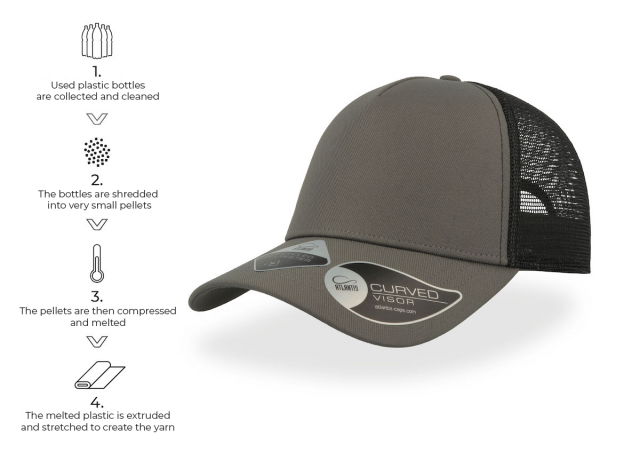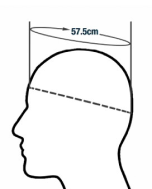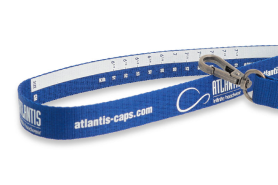Our Commitment to Preferred Polyester
Polyester is a fundamental fiber in our collections and one of the most used in the world: strong, durable, and wrinkle-resistant, it allows us to create lightweight hats that dry quickly. Additionally, unlike cotton, it does not fade or lose quality when exposed to the sun, which increases its durability. However, its production has a significant environmental cost: virgin polyester is a synthetic fiber derived from petroleum that requires a lot of energy to produce¹.
For this reason, over the years we have sought alternative solutions that would allow us to reduce dependence on fossil raw materials and increasingly move towards environmentally friendly materials (so-called preferred).
Among these is certainly recycled polyester (or rPET), a type of synthetic fiber that can be obtained through raw materials such as post-consumer PET plastic bottles, polyester fabrics and clothing, pre-consumer industrial waste, PET plastic packaging, and even fishing nets and plastic materials recovered from the oceans. These materials are then processed through mechanical or chemical processes to be transformed into new polyester products.
Each type of recycled polyester has its advantages and disadvantages, both in terms of production impact and fiber performance, and at Atlantis, we evaluate collection by collection which could be the best solutions.
Over the years we have experimented and will continue to experiment, but we have also chosen to set ourselves a precise goal: by 2025, at least 45% of the polyester we purchase to make our garments will be recycled. This is a commitment we share with all the companies that have chosen to join the 2025 Recycled Polyester Challenge, an initiative promoted by Textile Exchange to significantly reduce the entry of new fossil-based synthetic fibers into the fashion system².






























